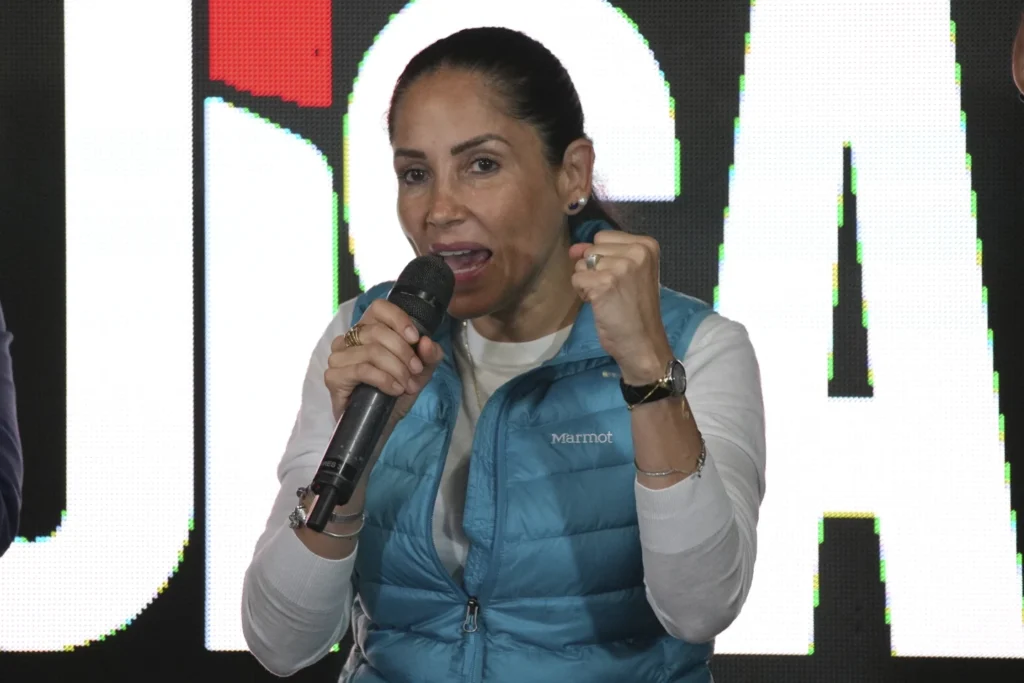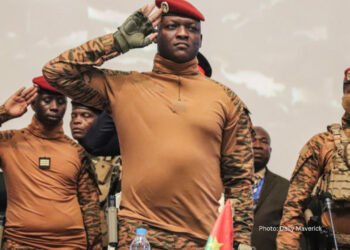Ecuador is set for a decisive presidential runoff election after conservative incumbent Daniel Noboa and leftist candidate Luisa González secured the most votes in a fiercely contested first round.
The two candidates outperformed 14 others in Sunday’s election and will now face off on April 13 for a full four-year term.
The upcoming vote is a repeat of the October 2023 snap election that granted Noboa a 16-month presidency. With crime and economic instability dominating public concerns, both candidates have pledged to address the security crisis that has gripped the nation over the past four years.
The surge in violence is closely linked to the trafficking of cocaine from neighboring Colombia and Peru. Crime has become a major concern for voters, with many having personally experienced incidents of extortion, theft, or worse.
This sentiment has shaped the election, as Ecuadorians weigh whether Noboa has earned more time to implement reforms or if a new leader should take charge.
Figures from Ecuador’s National Electoral Council revealed that with 80% of votes counted, Noboa had secured over 3.71 million votes (44.43%), while González trailed closely with 3.69 million votes (44.17%). The other 14 candidates lagged far behind.
Voting is mandatory in Ecuador, and electoral officials reported that more than 83% of the country’s 13.7 million eligible voters participated in the election. To win outright, a candidate needed either 50% of the votes or at least 40% with a 10-point lead—a threshold neither Noboa nor González met.
Crime and Public Safety
Under Noboa’s administration, the homicide rate declined from 46.18 per 100,000 people in 2023 to 38.76 per 100,000 last year.
However, this remains significantly higher than the 2019 rate of 6.85 per 100,000, and other crimes such as kidnapping and extortion have surged. “For me, this president is disastrous,” said Marta Barres, a 35-year-old voter who must pay $25 a month to a local gang for protection. She cast her vote for González, believing she could curb crime and improve Ecuador’s economy.
Noboa previously defeated González in the October 2023 runoff triggered by former President Guillermo Lasso’s decision to dissolve the National Assembly. Both candidates had limited legislative experience before launching their presidential campaigns.
Noboa, 37, comes from a wealthy family with deep roots in Ecuador’s banana trade. He began his career in business before entering politics in 2021. Since taking office, he has employed a heavy-handed approach to combating crime, which has drawn both praise and criticism.
One of his most controversial moves was declaring a state of “internal armed conflict” in January 2024, allowing the military to target organized crime networks.
Additionally, his administration faced international scrutiny after authorizing a police raid on Mexico’s embassy in Quito to arrest former Vice President Jorge Glas, who had been granted asylum there.
Despite concerns over his tactics, Noboa has earned support from voters who believe he is the only candidate tough enough to tackle crime. “Noboa is the only person hitting organized crime hard,” said retiree German Rizzo, who voted for the incumbent.
González and Correa’s Influence
González, 47, held several government positions during the presidency of Rafael Correa, who led Ecuador from 2007 to 2017. Correa’s administration was marked by generous social spending but also increased authoritarianism. In 2020, he was sentenced to prison in absentia for corruption.

Though relatively unknown before her candidacy, González has become a significant political force. Many see her campaign as an extension of Correa’s policies, with a strong focus on social welfare and economic stability.
Political analysts say her ability to challenge Noboa in the runoff marks a victory for Correa’s party. “Sunday’s result was a triumph for Correa’s movement,” said Maria Cristina Bayas, a professor at Quito’s University of the Americas.
However, some experts believe Noboa may have already reached his peak support and must revamp his campaign to win in April.
As Ecuador prepares for the runoff, many voters remain undecided. Architecture student Keila Torres, who has been a victim of crime multiple times, expressed skepticism about either candidate’s ability to bring change.“If I could, I wouldn’t be here,” Torres said, recalling three robberies she witnessed on public buses and a carjacking attempt in December. “Things are not going to change.”
With security and economic concerns dominating the election, the runoff will be a defining moment for Ecuador’s future.
READ ALSO: Presidential Appointments: Competence, Loyalty or Politics?



















